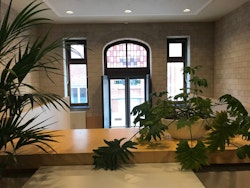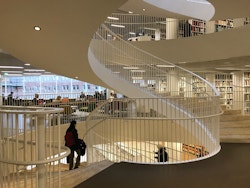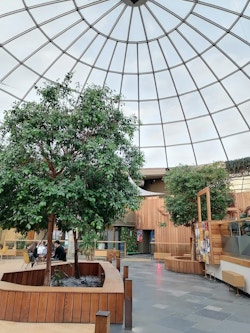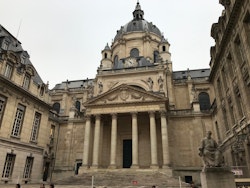Open Educational Resources (OER) toolkit
Overview
This toolkit is intended to provide guidance and information to support Una Europa staff, students, and other members of our community to use and create Open Educational Resources (OERs) to amplify their work. Drawing on and collating many existing OERs, the toolkit itself is an OER that can benefit those not only within the Una Europa alliance but also the wider public.

Using and creating OERs is an ethos Una Europa embraces, focused on openness, inclusion, and sharing our innovative work to benefit others. However, not everything openly shared on the Internet is an OER. It’s not an OER unless it:
- has an open licence (Creative Commons licence)
- is shared openly and as widely as possible (usually online)
Therefore, content that is freely available (including webpages, images, podcasts, YouTube videos, MOOCs etc.) is not considered to be an OER unless it also includes an open licence. OER creators retain copyright over their resources, and adding an open licence (such as a Creative Commons licence) is a key aspect to clarify how others can openly use, share, and adapt resources as permitted and with appropriate attribution to the copyright owner. Our checklists and practical 'how-to' guides for using OERs and creating OERs were created to help you.
Below we share our vision for OERs with Una Europa, and the other sections of the toolkit provide practical examples and how-to guides to support individuals to use and create OERs.
" [Open education aims] ...to widen access and participation to everyone by removing barriers and making learning accessible, abundant, and customisable for all. It offers multiple ways of teaching and learning, building and sharing knowledge. "
Vision statement purpose
This vision statement outlines Una Europa's vision for Open Educational Resources (OERs) in relation to our learning, teaching, research and innovation.
Drawing on the UNESCO Recommendation on Open Educational Resources (2019), we define OERs as materials that reside in the public domain or are under copyright that have been released under an open licence. This permits users to hold a copy, re-use and share at no-cost. In most cases, these open licences also promote innovation through adaptation and re-mixing by others. These materials are commonly digital to facilitate sharing but can be in any format and medium and could be text, images, videos, or other resources.

Background and context
In line with the UNESCO OER Recommendation, we believe that OERs and wider open education practices can contribute to achieving the aims of the United Nations Sustainable Development Goals (SDGs), to which Una Europa is committed.
We also recognise that the European Commission has had a longstanding commitment to opening up education by ‘Creating opportunities for organisations, teachers and learners to innovate... [and promoting i[ncreased use of Open Educational Resources (OER), ensuring that educational materials produced with public funding are available to all…’ (European Commission, 2013).
All staff, students and members of our wider Una Europa community use, create and publish a wide range of materials to support learning, teaching, research and innovation. These materials (such as course notes, handouts, course work assignments, video, audio, images, and others) could become OERs if they are shared with an open licence.
Our vision
1. Una Europa actively promotes OERs by facilitating all staff, students and members of our wider community to use, create, and publish OERs. We believe that OERs will enhance the quality of learning and teaching experiences for all, as well as our wider initiatives. Therefore, we will maximise open educational practices by:
- embedding OERs into our existing work in education and mobility (e.g., sharing some materials from each of our Joint Innovative Formats as OERs, creating opportunities for students to develop OERs as part of their coursework and assignments);
- promoting open science, research, and data as well as open access publications; and
- embedding OER creation into other areas of our work (such as Future UniLab, Seed Funding initiatives, Staff Weeks, Live My Life, Una.Futura, Student Congress, Una Europa Prize, Una Challenge, and others) to share innovative ideas and outputs as widely as possible
2. The use and creation of OERs is consistent with Una Europa’s vision and values: to share knowledge and to ensure our teaching and research is relevant to society, diverse, inclusive, and accessible to all. As such, OERs will showcase our offerings by sharing them as widely as possible.
3. We will draw on our collective strengths to foster a truly borderless community that contributes to a body of evolving knowledge, ideas, and values. OERs will enhance Una Europa's work whilst contributing to 'a vast pool of educational resources on the Internet, open and free for all to use… creating a world where each and every person on earth can access and contribute to the sum of all human knowledge' (Cape Town Open Education Declaration, 2007). Therefore, OERs will reduce duplication of effort and advance the sustainability of our work.
4. OERs are innovative and they will help us improve, consolidate, and deepen our collaborations across and beyond Una Europa. As OERs are continually shared, adapted and enhanced they will keep our work relevant to the changing times and contexts.

Except where otherwise noted or where logos are trademarked, this content was developed by the Una Europa OER Working Group, 2022, CC BY.




